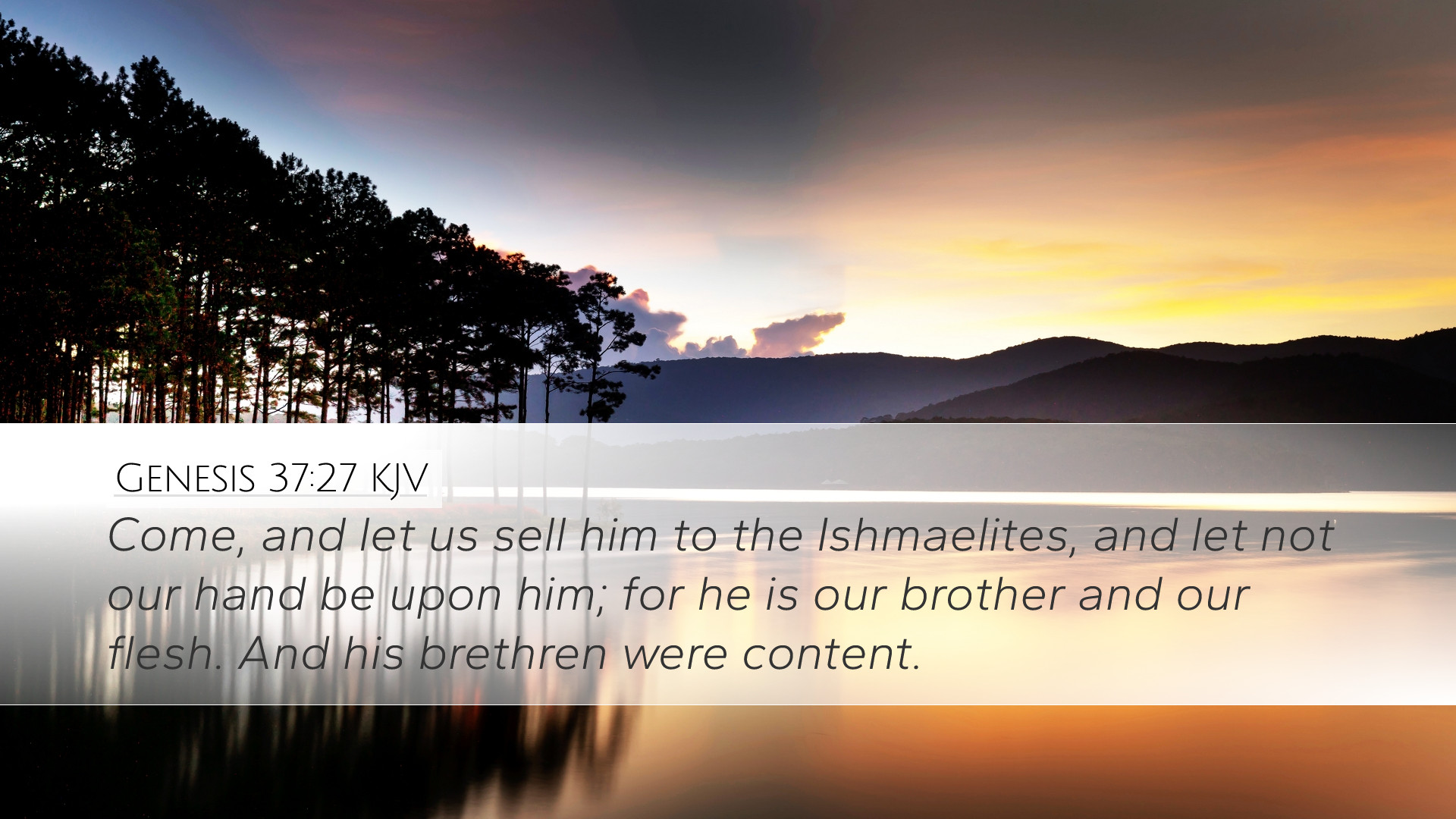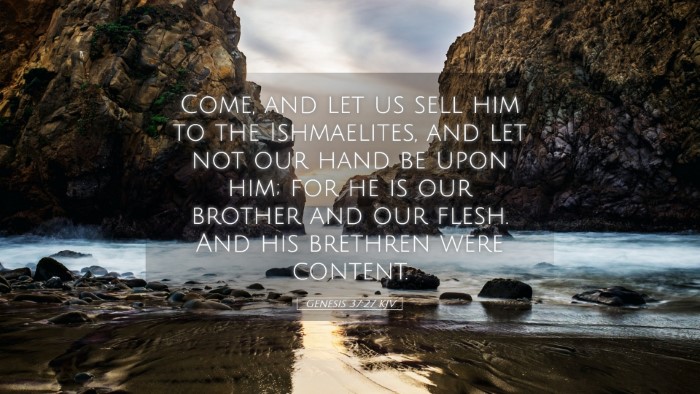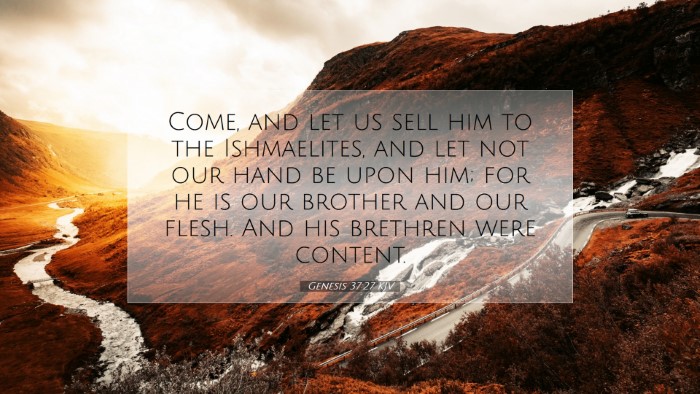Commentary on Genesis 37:27
Verse: “Come, and let us sell him to the Ishmaelites, and let not our hand be upon him; for he is our brother and our flesh. And his brethren were content.” (Genesis 37:27)
This verse captures a pivotal moment in the narrative of Joseph, depicting a significant moral and ethical conflict among the brothers of Joseph, as they grapple with their feelings of jealousy and hatred versus familial ties. This commentary synthesizes insights from various public domain sources.
1. Contextual Analysis
The context of Genesis 37 reveals a family torn apart by jealousy and betrayal. Joseph, the favored son of Jacob, experiences alienation from his brothers due to their father's affection towards him. This jealousy reaches a climax when they contemplate Joseph's fate.
1.1 Familial Dynamics
Matthew Henry points out the tragic irony in this familial discord. The brothers' suggestion to sell Joseph rather than kill him reveals an internal struggle: they recognize him as their brother yet succumb to their baser instincts driven by envy.
1.2 The Role of the Ishmaelites
Albert Barnes elaborates on the significance of the Ishmaelites, identifying them as distant relatives and traders. Selling Joseph to them is not merely an act of betrayal but also an act that affects the broader narrative of God's plan for Israel.
2. Moral Implications
The decision to sell Joseph instead of killing him illustrates a conflict between morality and self-interest. It morphs into an ethical dilemma where the brothers attempt to justify their actions.
2.1 Justification of Actions
Adam Clarke notes the dangerous tendency of justifying wrong actions under the guise of lesser evils. The brothers convince themselves that selling Joseph is preferable to murder, yet both convey a lack of compassion.
2.2 Implications of Kinship
Henry emphasizes the notable respect the brothers show by acknowledging Joseph as their "brother and flesh." This acknowledgement underscores human relational ties, even in grievous moral failings. The recognition of kinship serves to highlight the depth of their betrayal.
3. Theological Reflection
This verse invites deeper theological reflection on God's providence amid human sinfulness. Despite the brothers' intentions, God's overarching plan for Joseph and the future of Israel unfolds.
3.1 God’s Sovereignty
Barnes argues the importance of recognizing God's sovereignty in the unfolding events. God utilizes even these treacherous actions to elevate Joseph and fulfill His promises to Abraham, Isaac, and Jacob.
3.2 The Element of Divine Purpose
Both Clarke and Henry agree on the perspective that God can bring about good from evil intentions. Joseph’s eventual rise to power in Egypt will serve as a means to preserve the lineage of Israel, pointing forward to God's purpose in salvation history.
4. Practical Applications for Today
The echoes of this narrative remain relevant as we grapple with issues of jealousy, betrayal, and ethical decision-making in our communities. The pastoral implications of such a passage encourage a reflection on personal integrity and family relationships.
4.1 Addressing Jealousy
Pastors may use this passage to counsel individuals dealing with feelings of jealousy and betrayal within their own families or communities, promoting forgiveness and reconciliation.
4.2 Ethical Living
This text urges believers to confront their motivations behind decisions, especially when they stand at the crossroads of moral dilemmas. It serves as a reminder to uphold familial love and compassion over self-serving choices.
4.3 Emphasizing God’s Plan
The narrative assures the faithful that God’s hand remains at work even in our darkest moments. The ultimate triumph of God's purpose through Joseph’s trials can be an encouragement for those facing adversities or injustices.
Conclusion
Genesis 37:27 presents a compelling intersection of family dynamics, moral challenges, and divine providence. Through the lens of the public domain commentaries of Matthew Henry, Albert Barnes, and Adam Clarke, we garner profound insights that stretch across time, urging us to reflect on our human frailties and the unwavering faithfulness of God.


